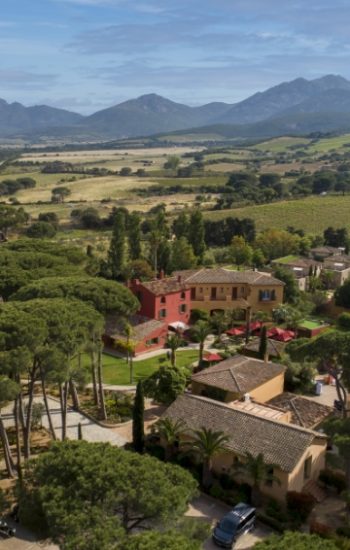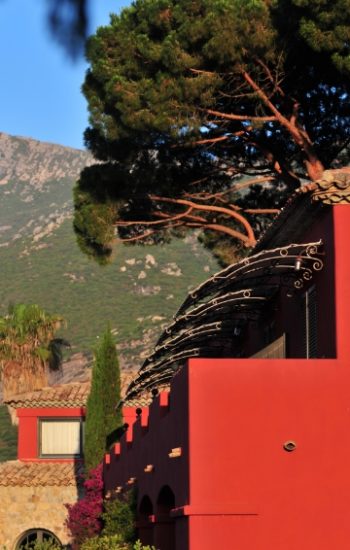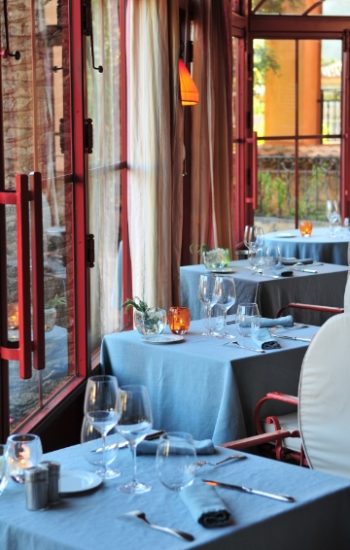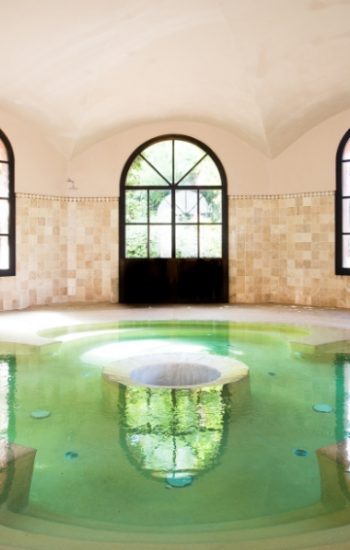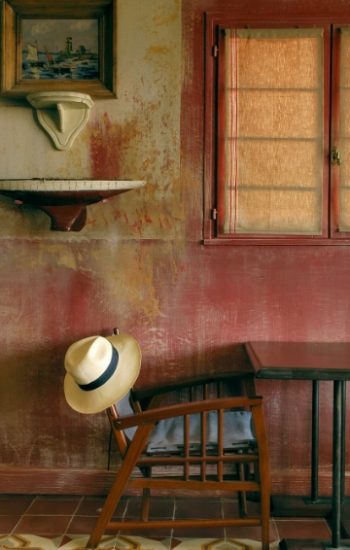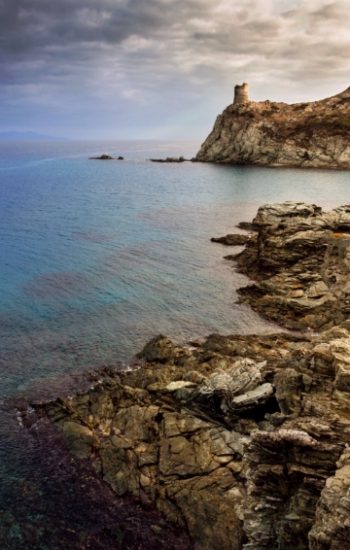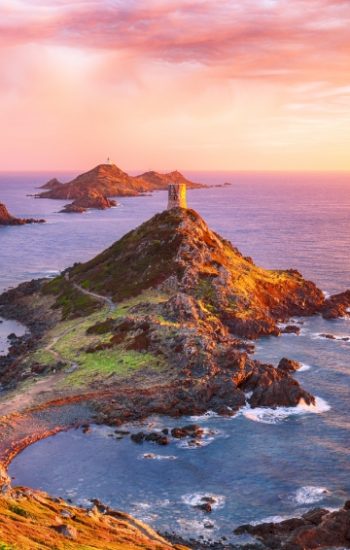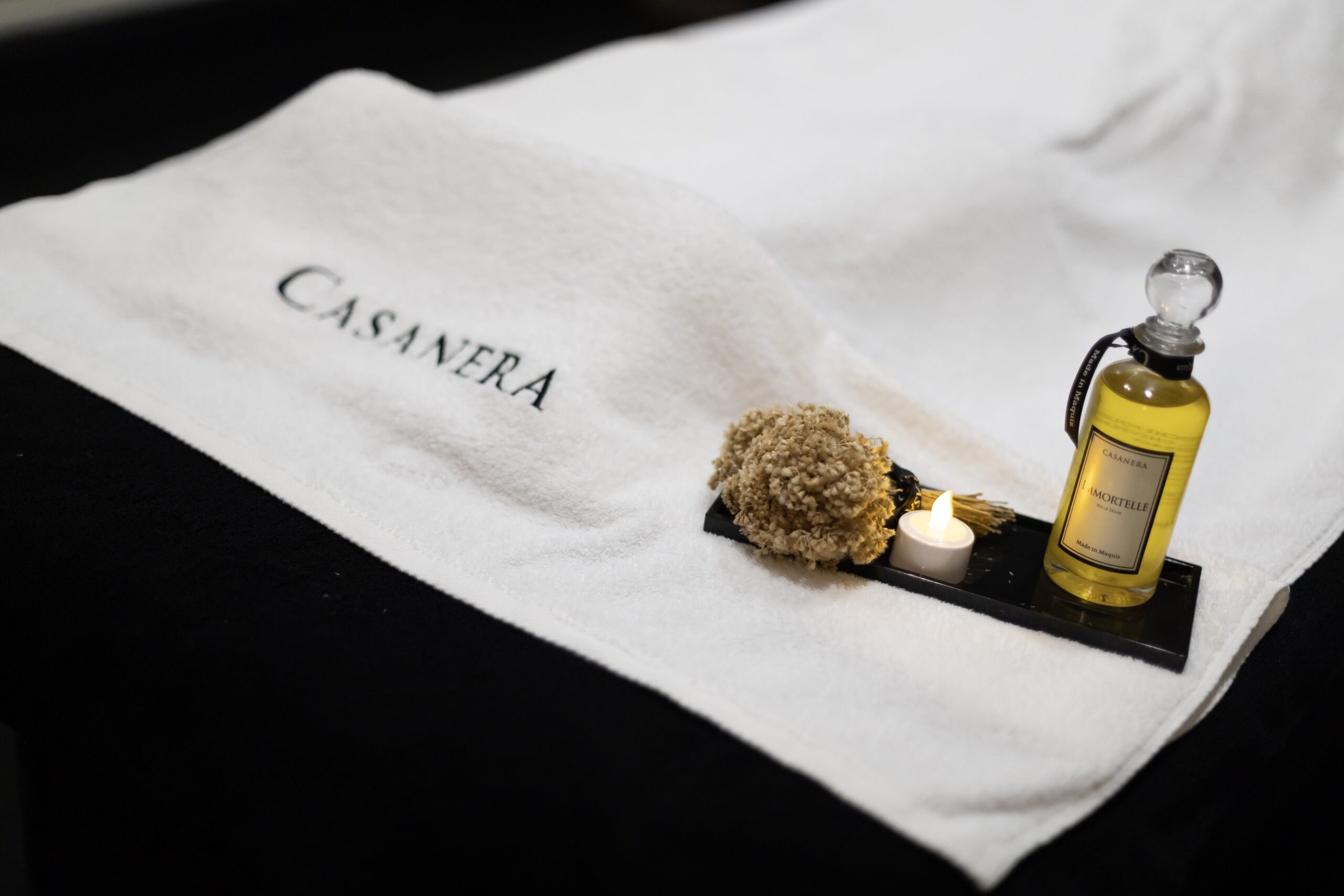Its strategic position
The city of Calvi is a jewel of the island of beauty. It has inherited an exceptional privilege with its geographical location, rich history and heritage. Facing the coastline of the French Riviera, it gives its inhabitants an incredible sea view. Its historical values, the attractive and friendly character of the city of Calvi has made it the tourist and economic capital of Balagne. What are the particularities of the city of Calvi?
Calvi is a small corner of paradise located in the department of Haute-Corse, precisely in the northwest. It belongs to the region of the collectivity of Corsica. Together with Ile-Rousse, it is one of the two major towns of Balagne. It is bordered by the Mediterranean Sea and has a wide maritime façade. Its bay is shaped like a half moon. A huge citadel built in the Middle Ages overlooks the town from the western side of the bay.
To the north, the Gulf of Calvi, also known as the Bay of Calvi, is bounded to the east by the Punta Caldanu, an ancient ruined Genoese tower, and to the west by the promontory of Punta San Francescu (Saint-François Point). To the south of the town of Calvi, La Revellata is a rocky promontory bordered by beaches home to the fauna and flora still preserved in its wild state. This peninsula is the symbol of biodiversity in Corsica and abounds in rare, endemic and protected plant species.
The town of Calvi is rich in relics of the past
Archaeological excavations in the city have demonstrated the tumultuous battles that its inhabitants once had to fight against the besiegers. The strategic location of the city led the Romans to establish a flourishing economic and commercial relationship with the Calvans from 259 BC. The decline of Rome in the 4th century AD handed Corsica over to the barbarians and this destroyed the town. In the 13th century Calvi was administered by the Italian republics of Pisa and Genoa. From 1245 onwards, the local lords of the two countries went to war to conquer the town of Calvi. To settle the dispute, Calvi asked for Genoa's protection. The construction of the citadel from 1245 marked the defeat of Pisa. In 1420, the city went to war and came under the authority of King Alfonso V of Aragon who conquered the city. His failure at Bonifacio led the inhabitants of Calvi to revolt and decimate the Spanish garrison.
At war with Charles V, the French attempted to conquer the coveted city in 1553. They laid siege to it in 1555 with the help of the rebel troops of Sampiero Corsu and the Turks. Unfortunately for them, the city resisted and the French withdrew. "Civitas Calvi Semper Fidelis", this inscription at the entrance to the citadel was Calvi's motto to prove its loyalty to Genoa, the Italian port city and capital of Liguria.
If you follow the cobbled streets of the city, they will lead you to its citadel. The majestic Genoese citadel overlooks the city. Take a walk on the high ramparts and you will enjoy a 360° panoramic view of the city! Like a jewel box set on the water, it offers a remarkable view of the snow-capped massifs of Monte Grossu reflecting their shadows on the clear blue sea.
It is said that Christopher Columbus was born in Calvi. The emblematic town jealously guards the heritage of Christopher Columbus. If you take the road to the Calvi citadelYou will see the house where he once lived with his family. Napoleon Bonaparte is also an illustrious character of the city of Calvi. He lived in his famous castle in the citadel with Laurent Giubega, his nephew Prince Pierre.
On a par with Porto-Vecchio, Calvi constitutes a tourist pole of the Corsican region.
The natural beauty of the town of Calvi
Calvi also has a particular mining wealth. Its soil is composed of sub-alkaline granite, formed essentially by a vast batholith resulting from a Carboniferous plutonic cycle. This stone is at the origin of the formation of the leucogranites or white granites of Calvi.
You will enjoy surprising encounters as you stroll through the narrow cobbled streets of Calvi. The town will spoil you with its beauty and wellness shops. There is no need to worry if you get hungry while strolling through the town! There are plenty of ice-cream parlours, café terraces and restaurants to satisfy your needs! If you enjoy hiking or group excursions, we recommend visiting other beautiful places such as the vast Bonifato forest or the jewel of Calvi's cultural heritage, Notre Dame de la Serra.
If you take the harbour path, you will find at the foot of the imposing Genoese building, fishermen's boats and yachtsmen ready to show you the magnificent places off the Mediterranean such as the Scandola reserve, the Revelatta and the treasures of the marina. Where else on the planet will you find a beach next to a town centre? Indeed, Calvi has this long beach of fine sand and immaculate white. The beach is bordered by a pine forest which you can admire and feel as you stroll along the wooden footbridge.
If you want to stay a few days in the town of Calvi, there are many hotels and holiday homes that offer quality services. You can have access to a jacuzzi, an outdoor swimming pool, a bungalow with air conditioning, water and electricity. The larger hotels may even offer free wifi to their guests. Take advantage of visiting the picturesque villages to discover the specialities of the island of beauty, the wonders of its gastronomy, its delicatessen products and its cheeses!
To conclude, the town of Calvi has countless treasures, sports and leisure activities to discover that will enchant your next holiday!







